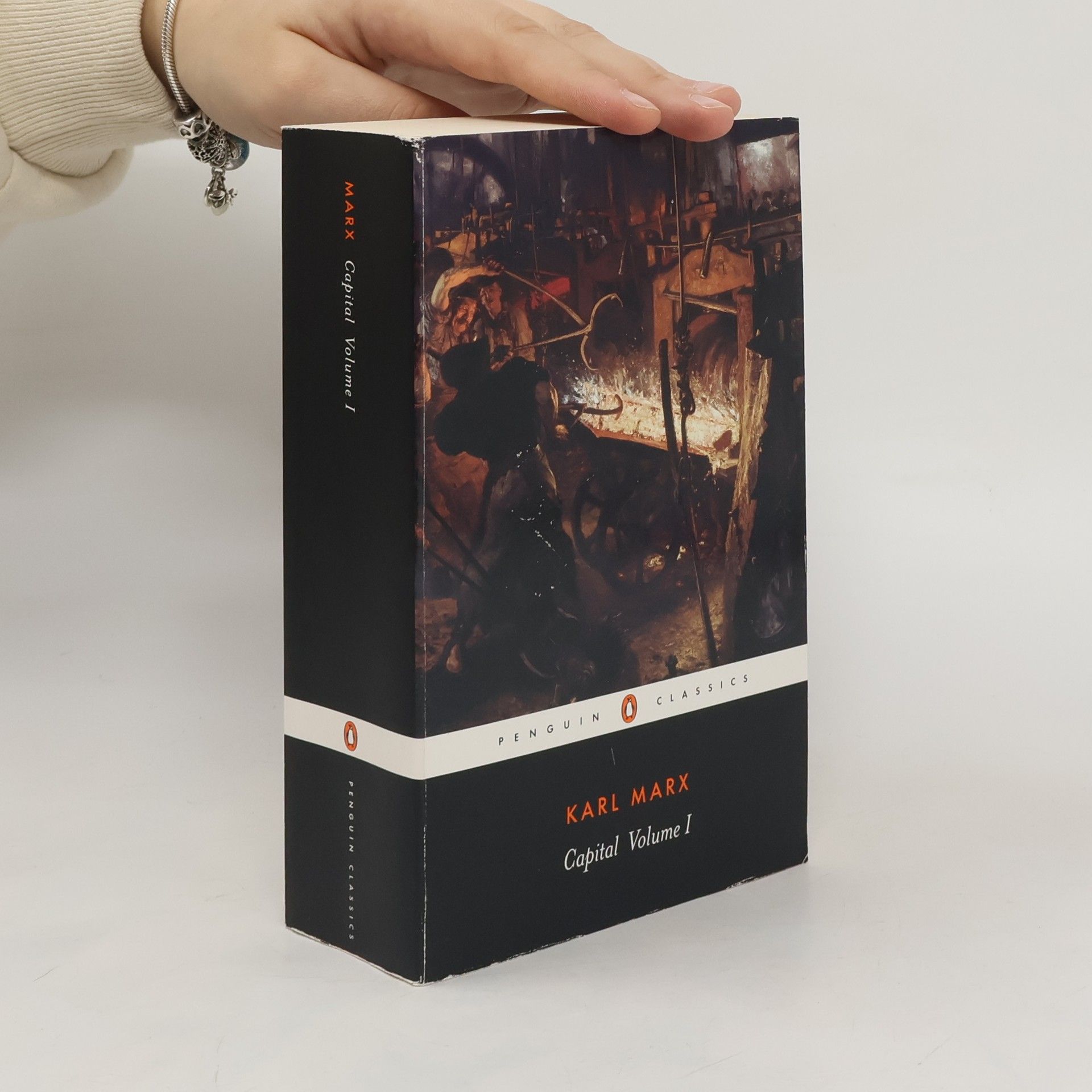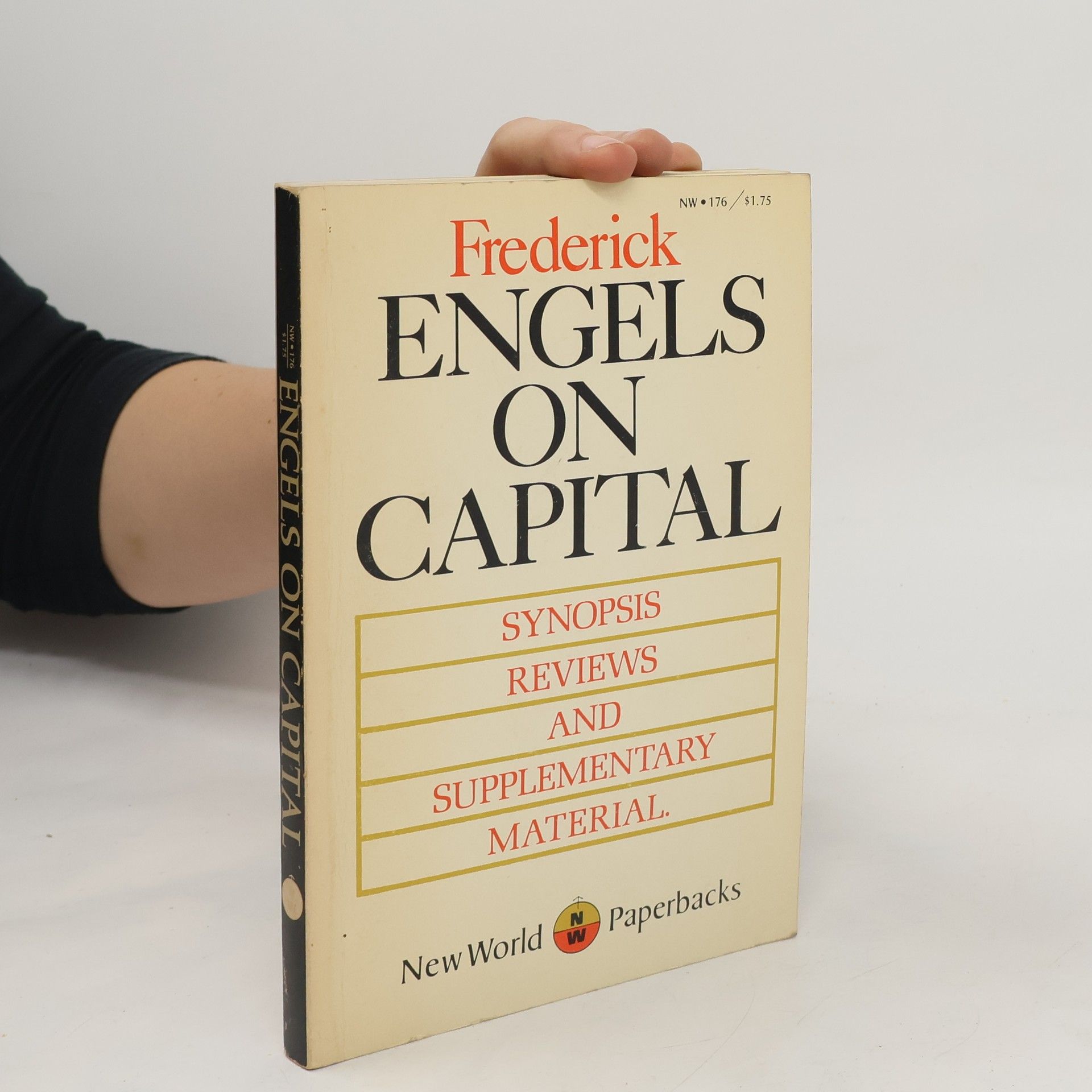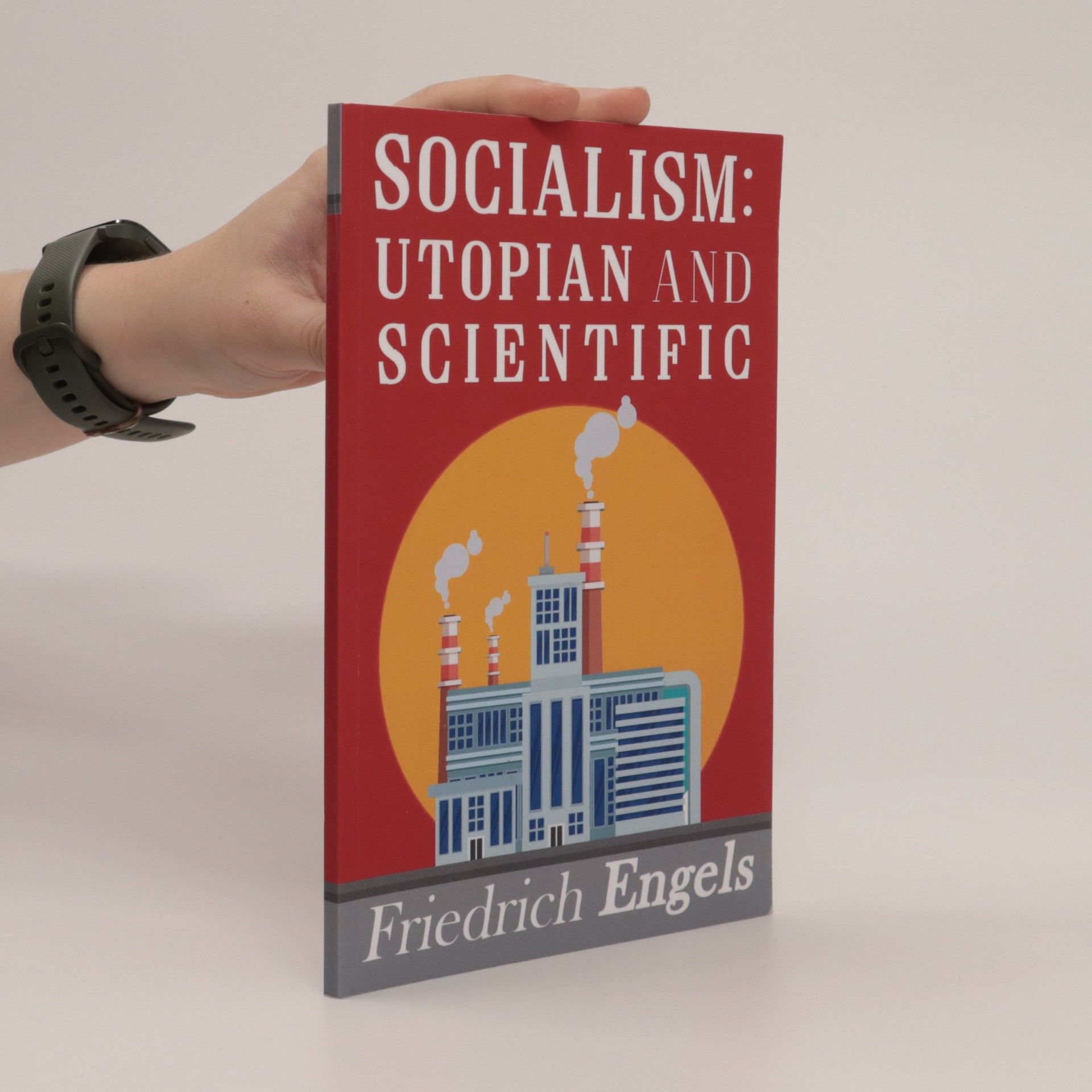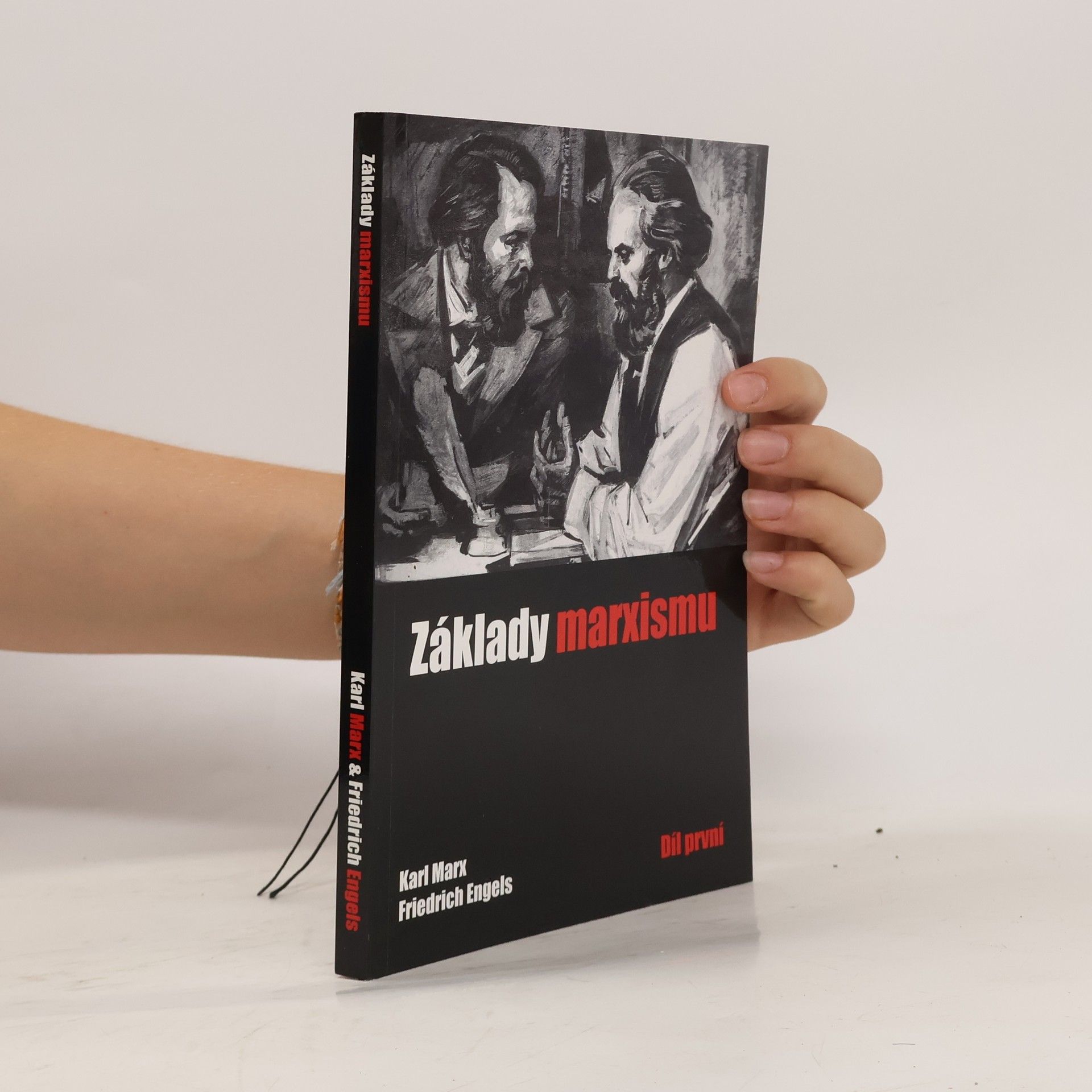Die heilige Familie bietet eine kritische Auseinandersetzung mit der Philosophie und den Ideen der Hegelschen Schule. Marx und Engels analysieren die gesellschaftlichen und politischen Bedingungen ihrer Zeit, um die Grenzen der damaligen Kritiken aufzuzeigen. Diese Ausgabe im lesefreundlichen Großdruck präsentiert den Text in einem ansprechenden Format und basiert auf der umfassenden Sammlung der Werke der beiden Denker. Der durchgesehene Neusatz von Theodor Borken macht das Werk zugänglich für ein breiteres Publikum und trägt zur Fortführung der Diskussion über Marxismus und seine Relevanz bei.
Friedrich Engels Book order (chronological)
Friedrich Engels was a German thinker and social reformer whose early experiences with industrial poverty in England spurred him to analyze social injustice. Upon meeting Karl Marx, they became lifelong collaborators, co-authoring seminal works that shaped socialist thought. Engels delved into the origins of the state and family, earning a reputation for his devout atheism. His writings continue to provoke reflection on power structures and inequality.







Complete Works of Friedrich Engels (Grapevine edition)
- 584 pages
- 21 hours of reading
This comprehensive compilation showcases the extensive writings of Friedrich Engels, a key figure in the development of Marxist theory alongside Karl Marx. It offers insights into his thoughts on economics, politics, and social issues, reflecting the historical context of the 19th century and Engels' influential role in shaping socialist ideology. The collection serves as a valuable resource for understanding his contributions to philosophy and political theory.
Das kommunistische Manifest. Schmuckausgabe mit Farbschnitt
»Keine Schrift hat im selben Maße Geschichte geschrieben« NDR
- 80 pages
- 3 hours of reading
Das "Kommunistische Manifest" von Karl Marx und Friedrich Engels ist eine kraftvolle Analyse der sozialen Gerechtigkeit und der Rolle des Proletariats in der Geschichte. Es gilt als zentraler Text der Moderne und hat bis heute großen Einfluss. Die klare Sprache und die prägnante Darstellung machen es zu einer anregenden Lektüre.
In seinen späten Schriften unternimmt Friedrich Engels den Versuch, Karl Marx und Charles Darwin zusammenzudenken. Hellsichtig zeigt er in wissensgeschichtlichen und zeitkritischen Beobachtungen, "dass wir keineswegs die Natur beherrschen, wie ein Eroberer ein fremdes Volk beherrscht - sondern dass wir mit Fleisch und Blut und Hirn ihr angehören und mitten in ihr stehn". Eindringlich warnt er vor der Selbstzerstörung einer Menschheit, die diesen Zusammenhang missachtet: "Schmeicheln wir uns indes nicht zu sehr mit unsern menschlichen Siegen über die Natur. Für jeden solchen Sieg rächt sie sich an uns." Auswahl und Kommentare erschließen einen Grundlagentext für unsere Zeit
Manifest der kommunistischen Partei
Karl Marx und Friedrich Engels
"Die Geschichte aller bisherigen Gesellschaft ist die Geschichte von Klassenkämpfen. Freier und Sklave, Patrizier und Plebejer, Baron und Leibeigener, Zunftbürger und Gesell, kurz, Unterdrücker und Unterdrückte standen in stetem Gegensatz zueinander, führten einen ununterbrochenen, bald versteckten, bald offenen Kampf. Proletarier aller Länder, vereinigt euch!" aus: Manifest der kommunistischen Partei. Gröls-Verlag (Edition Werke der Welitliteratur)
Capital Volume 1
- 1152 pages
- 41 hours of reading
The first volume of a political treatise that changed the world One of the most notorious works of modern times, as well as one of the most influential, Capital is an incisive critique of private property and the social relations it generates. Living in exile in England, where this work was largely written, Marx drew on a wide-ranging knowledge of its society to support his analysis and create fresh insights. Arguing that capitalism would cause an ever-increasing division in wealth and welfare, he predicted its abolition and replacement by a system with common ownership of the means of production. Capital rapidly acquired readership among the leaders of social democratic parties, particularly in Russia in Germany, and ultimately throughout the world, to become a work described by Marx friend and collaborator Friedrich Engels as “the Bible of the working class.” For more than seventy years, Penguin has been the leading publisher of classic literature in the English-speaking world. With more than 1,700 titles, Penguin Classics represents a global bookshelf of the best works throughout history and across genres and disciplines. Readers trust the series to provide authoritative texts enhanced by introductions and notes by distinguished scholars and contemporary authors, as well as up-to-date translations by award-winning translators.
Die Untersuchung des Bauernkriegs von 1525 bietet eine tiefgehende Analyse der ökonomischen, sozialen und ideologischen Bedingungen, die zu diesem Konflikt führten. Friedrich Engels zeigt, wie die Bauern durch Bündnisse gegen ihre Unterdrücker mobilisierten, bevor Intrigen und Verrat zu ihrem Niedergang führten. Zudem beleuchtet er die Konflikte zwischen Thomas Münzer und Martin Luther. Abschließend werden die Auswirkungen des Bauernkriegs betrachtet und Parallelen zur Märzrevolution gezogen, wodurch Engels' kritische Perspektive auf gesellschaftliche Umwälzungen deutlich wird.
The Communist Manifesto (Royal Collector's Edition) (Case Laminate Hardcover with Jacket)
- 54 pages
- 2 hours of reading
Focusing on class struggle and capitalism, this influential political manuscript offers a critical analysis of the capitalist system and its inherent issues. It delves into the dynamics between different social classes, providing insight into the socio-economic challenges of the time and laying the groundwork for communist theory.
